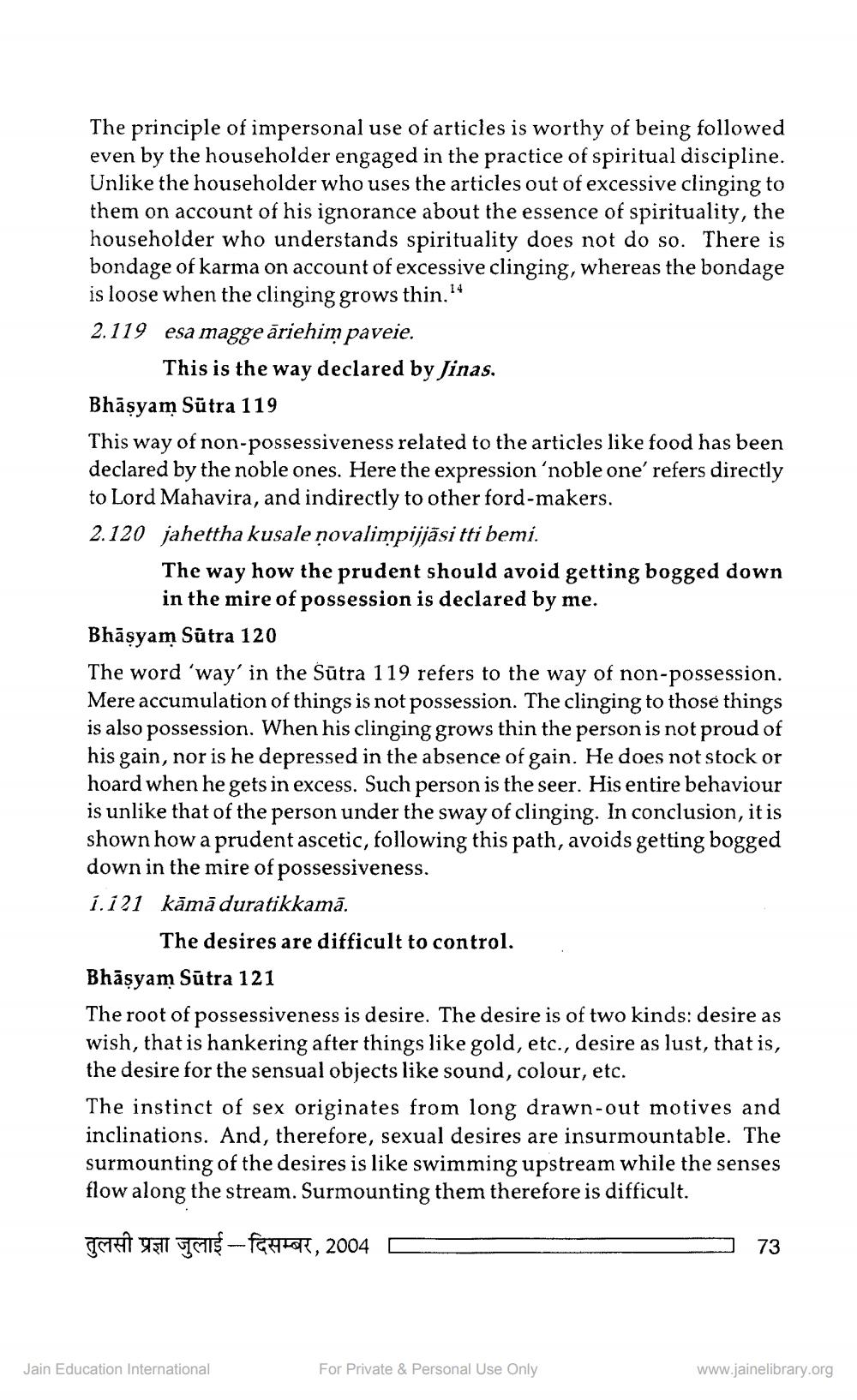________________
The principle of impersonal use of articles is worthy of being followed even by the householder engaged in the practice of spiritual discipline. Unlike the householder who uses the articles out of excessive clinging to them on account of his ignorance about the essence of spirituality, the householder who understands spirituality does not do so. There is bondage of karma on account of excessive clinging, whereas the bondage is loose when the clinging grows thin." 2.119 esa magge āriehim paveie.
This is the way declared by Jinas. Bhāsyam Sūtra 119 This way of non-possessiveness related to the articles like food has been declared by the noble ones. Here the expression ‘noble one' refers directly to Lord Mahavira, and indirectly to other ford-makers. 2.120 jahettha kusale novalimpijjāsi tti bemi.
The way how the prudent should avoid getting bogged down
in the mire of possession is declared by me. Bhāsyam Sūtra 120 The word 'way' in the Sūtra 119 refers to the way of non-possession. Mere accumulation of things is not possession. The clinging to those things is also possession. When his clinging grows thin the person is not proud of his gain, nor is he depressed in the absence of gain. He does not stock or hoard when he gets in excess. Such person is the seer. His entire behaviour is unlike that of the person under the sway of clinging. In conclusion, it is shown how a prudent ascetic, following this path, avoids getting bogged down in the mire of possessiveness. 1.121 kāmā duratikkamā.
The desires are difficult to control. Bhāśyam Sutra 121 The root of possessiveness is desire. The desire is of two kinds: desire as wish, that is hankering after things like gold, etc., desire as lust, that is, the desire for the sensual objects like sound, colour, etc. The instinct of sex originates from long drawn-out motives and inclinations. And, therefore, sexual desires are insurmountable. The surmounting of the desires is like swimming upstream while the senses flow along the stream. Surmounting them therefore is difficult.
TETA UR 1415 --F450, 2004
73
Jain Education International
For Private & Personal Use Only
www.jainelibrary.org




